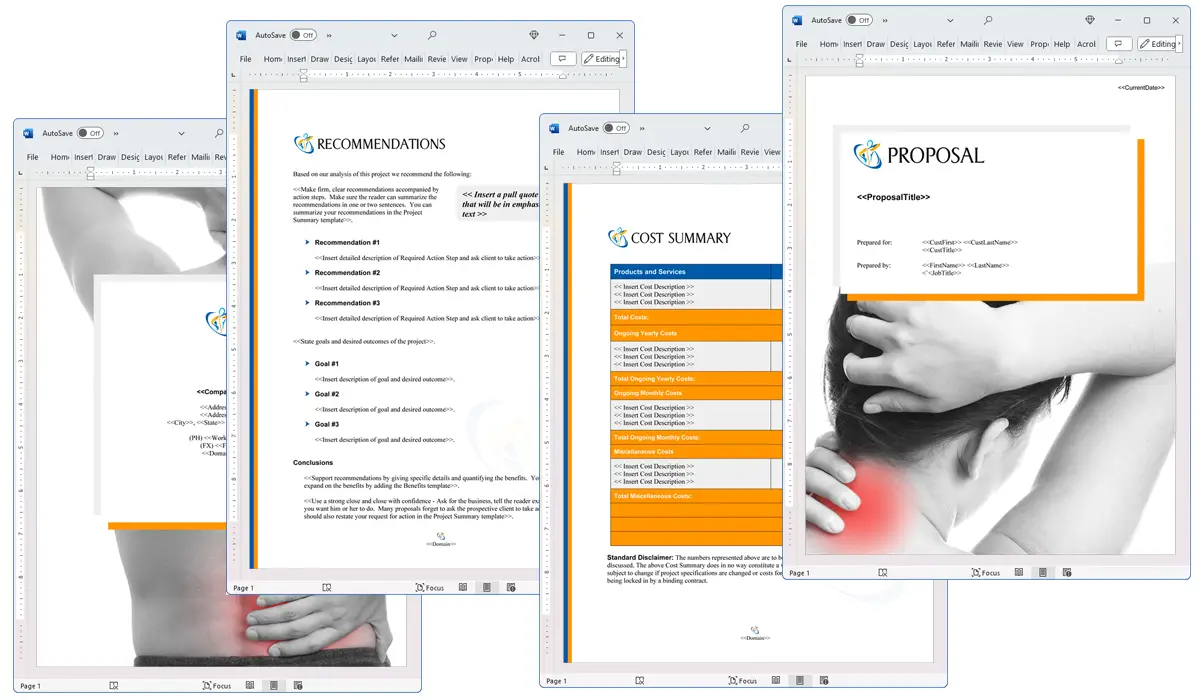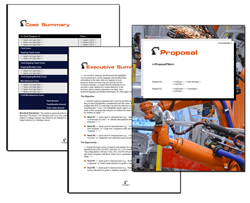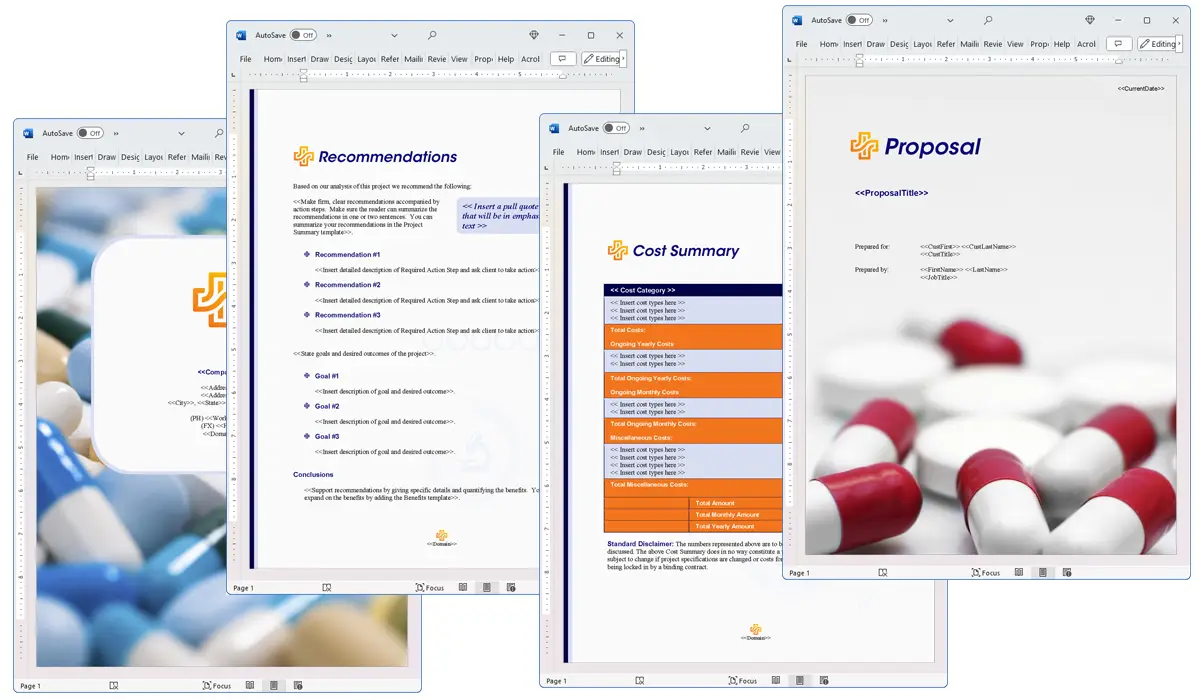What is the Valuation chapter used for?
Proposal Kit Professional Bundle adds more design themes, all six Contract Packs,
a project management library, and Expert Edition software.

Illustration of Proposal Pack Healthcare #6
We include this Valuation chapter template in every Proposal Pack, along with thousands more. You assemble this chapter with others in various combinations to create custom-tailored business proposals, plans, reports, and other documents. Proposal Packs apply custom visual designs to the templates, giving the final documents a consistent professional finish.
 DOWNLOADABLE, ONE-TIME COST, NO SUBSCRIPTION FEES
DOWNLOADABLE, ONE-TIME COST, NO SUBSCRIPTION FEES
Overview of the Valuation Chapter
The Valuation chapter is an important part of a business proposal, especially when the document's purpose involves the assessment of a company's worth or the value of its assets. This chapter helps outline and explain the methods and rationale behind determining these values, which is an important step for stakeholders to make informed financial decisions or investments. Understanding valuation is not only key for selling or buying but also for planning within a business.
How is the Valuation Chapter Used?
In a business proposal, the Valuation chapter is used to present a detailed and well-substantiated estimation of value. Whether the proposal is aimed at investors, partners, or potential buyers, this chapter offers a clear and objective basis for the figures proposed. It supports the proposal's objectives by providing proof of value which can back up claims about a company's worth or the price of an asset. This helps in building trust and credibility with the recipients of the proposal.
What is Included in the Valuation Chapter?
This chapter typically encompasses several key elements:
- Methodology: Description of the methods used to value the company or assets, such as Price-to-Earnings ratios, fundamental analysis, or averages of recent sales prices.
- Data Sources: Details about where the data supporting the valuation comes from, which may include market reports, financial statements, or sales records.
- Analysis: A thorough analysis of the data, highlighting how the numbers were crunched and what trends were observed.
- Assumptions: Any assumptions made during the valuation process are clearly stated to provide context and understanding.
- Summary: A summary of the valuation findings, providing a concise but comprehensive overview of the value estimate.
Use Case Examples for the Valuation Chapter
- Finance Proposals: For securing investment or loans, showing the value of the company as a secure investment.
- Insurance: Determining the value of assets for coverage purposes.
- Legal: In cases of disputes or divorces where asset valuation is required.
- Business Opportunities: For potential mergers or acquisitions, providing a valuation of the business in question.
- Franchise: Valuing existing franchise units before selling or buying additional units.
- Vending: Determining the worth of vending routes or equipment for sale or purchase proposals.
Key Takeaways
- The Valuation chapter is important for proposals needing a solid basis for financial figures.
- It uses specific methodologies suited to the type of valuation needed, such as asset or company valuation.
- Comprehensive data analysis and clear assumptions are critical components.
- This chapter enhances a proposal's credibility by substantiating value claims.
- It is and can be adapted for various industries and purposes, including finance, legal, and business acquisitions.

Illustration of Proposal Pack Robotics #1
 What Our Clients Say
What Our Clients SayThank you very much for your help. And, by the way, we used your product over the weekend and successfully finished our proposal. It was a HUGE help!"
 4.7 stars, based on 842 reviews
4.7 stars, based on 842 reviewsAlternate Chapters
Related Chapters
Document Layouts Using the Valuation Chapter

The Valuation chapter and other chapters are integrated into a Word document as illustrated here in the Proposal Pack Healthcare #5 design theme. There are hundreds of design themes available, and every design theme includes the Valuation chapter template.
A proper business proposal will include multiple chapters. This chapter is just one of many you can build into your proposal. We include the complete fill-in-the-blank template in our Proposal Pack template collections. We also include a library of sample proposals illustrating how companies in different industries, both large and small, have written proposals using our Proposal Packs. This template will show you how to write the Valuation.
We include a chapter library for you to build from based on your needs. All proposals are different and have different needs and goals. Pick the chapters from our collection and organize them as needed for your proposal.
Using the Proposal Pack template library, you can create any business proposal, report, study, plan, or document.
 Ian Lauder has been helping businesses write their proposals and contracts for two decades. Ian is the owner and founder of Proposal Kit, one of the original sources of business proposal and contract software products started in 1997.
Ian Lauder has been helping businesses write their proposals and contracts for two decades. Ian is the owner and founder of Proposal Kit, one of the original sources of business proposal and contract software products started in 1997.By Ian Lauder
 Published by Proposal Kit, Inc.
Published by Proposal Kit, Inc.


 Cart
Cart
 Facebook
Facebook YouTube
YouTube X
X Search Site
Search Site